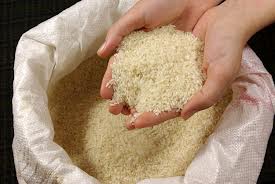New York, Apr 5: New York State, the epicentre of the coronavirus pandemic in the US, continued to record the highest count of daily deaths from COVID-19 as a staggering number of 630 people died in a 24-hour period and Governor Andrew Cuomo said the outbreak in the state could peak in about seven days.
The state had recorded the highest single increase in the number of deaths from novel coronavirus in a single day between April 2 and 3 when 562 people had died, one person dying from the viral infection almost every two-and-a-half minutes.
In the 24 hours since April 4, the death toll grew to 630, "all-time increase" up to a total of 3,565, up from 2,935 on Friday morning, Cuomo said.
The daily death toll in New York continues to grow at record numbers as the state remains the most impacted in the US from coronavirus.
Coronavirus cases in New York State now stand at 113,704, out of the country's total number of 312,146. New Jersey, the second most impacted state in the US, has about 30,000 COVID-19 cases.
New York City alone has 63,306 coronavirus patients, up from 57,169 the previous 24 hours, and 2,624 deaths.
Cuomo said the apex in the state, the point where the number of infections on a daily basis hits the high point, is still about 4-8 days away.
"We have been talking about hitting that apex, the high point of the curve. I call it the battle of the mountaintop. That's going to be the number one point of engagement of the enemy," he said.
"But our reading of the projections is we're somewhere in the seven-day range, four, five, six seven, eight day range. Nobody can give you a specific number, which makes it very frustrating to plan when they can't give you a specific number or a specific date, but we're in that range," Cuomo said.
"We are not yet at the apex. Part of me would like to be at the apex and just let's do it. But there's part of me that says it's good that we're not at the apex because we're not yet ready for the apex either, still working on the capacity of the (healthcare) system," the governor said.
Cuomo has expressed anger over the short supply of essential medical equipment for healthcare professionals to help them deal with the surge in coronavirus cases across the state and the country.
He said personal protective equipment (PPE) such as masks, gowns and face shields are in short supply in New York as they are across the country and there is need for companies to make these materials.
"It is unbelievable to me that in the New York State, in the United States of America, we can't make these materials and that we are all shopping China to try to get these materials and we're all competing against each other," he had said earlier.
Cuomo said on Saturday that the state has 85,000 volunteers, including 22,000 from outside the state, and he will also be signing an executive order to allow medical students who were slated to graduate to begin practising, supplementing the state's healthcare professional capacity.
On ventilators, he said the state had ordered 17,000 but there was not enough supply in the federal stockpile to meet this growing demand across the state.
"China is remarkably the repository for all of these orders - ventilators, PPE, it all goes back to China, which long term we have to figure out why we wound up in this situation where we don't have the manufacturing capacity in this country," he said, adding, "New York has been shopping in China."
The Chinese government helped facilitate a donation of 1,000 ventilators that will arrive at the JFK Airport in the city, he said, as he thanked the Chinese government, Alibaba head Jack Ma, the Jack Ma Foundation, Alibaba co-founder co-founder Joe Tsai and China's Consul General Huang Ping.
In addition, the state of Oregon would deliver 140 ventilators to New York.
Cuomo has signed an executive order allowing the state to redistribute ventilators and personal protective equipment from hospitals, private sector companies and institutions that don't currently need them and redeploy the equipment to other hospitals with the highest need.
Those institutions will either get their ventilator back or they will be reimbursed and paid for their ventilator so they can buy a new ventilator.
The 2,500-bed facility at the Javits Convention Centre, which was supposed to be used for non-COVID patients, will now be used as COVID-positive facility.
"The federal government will staff that and the federal government with equip that. That is a big deal because that 2,500-bed facility will relieve a lot of pressure on the downstate system as a significant number of beds and that facility has to make that transition quickly and that's what we're focused on," Cuomo said.
Cuomo emphasised that he wants the pandemic to end as soon as possible as it is taking an unprecedented strain on life.
"I want this to be all over. It's only gone on for 30 days since our first case. It feels like an entire lifetime. I think we all feel the same. This stresses this country, this state, in a way that nothing else has frankly, in my lifetime. It stresses us on every level.
The economy is stressed, the social fabric is stressed, the social systems are stressed, transportation is stressed," he said.
 Since June, thousands of people worldwide have doused themselves with a bucket of icy water, then posted a video recording of the stunt online and challenged others to do the same or pledge a donation.
Since June, thousands of people worldwide have doused themselves with a bucket of icy water, then posted a video recording of the stunt online and challenged others to do the same or pledge a donation.




Comments
Add new comment